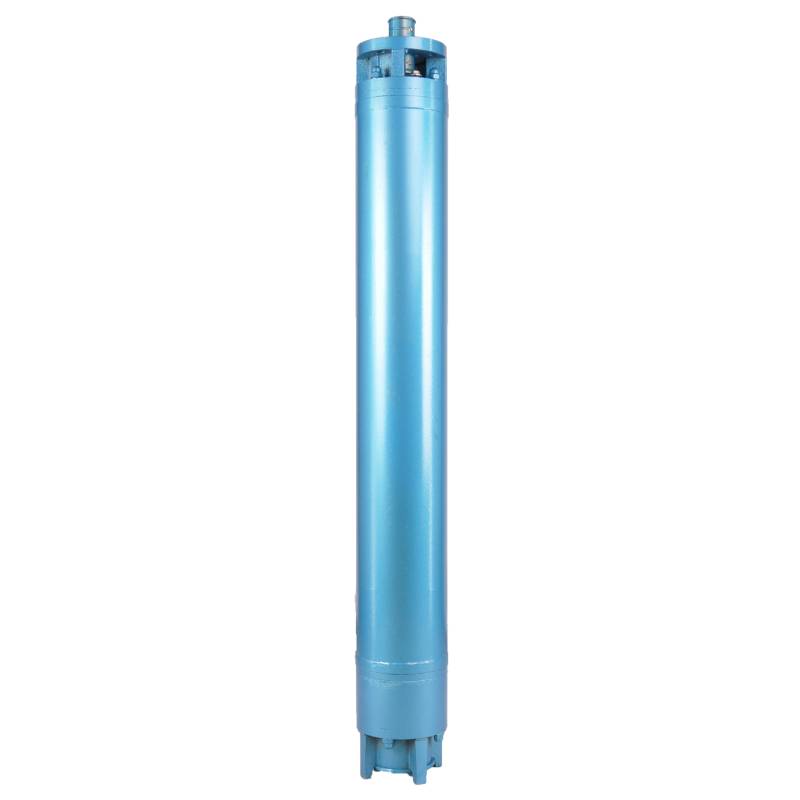Dec . 07, 2024 12:54 Back to list
chemical resistant submersible pump
Understanding Chemical Resistant Submersible Pumps
In various industrial and commercial applications, the management of corrosive liquids is a paramount concern. This concern necessitates the use of specialized equipment, such as chemical resistant submersible pumps. These pumps are engineered to handle aggressive chemicals, allowing for efficient pumping solutions without compromising the safety and reliability of operations.
What is a Submersible Pump?
A submersible pump is a type of pump that is designed to operate while submerged in the fluid it is pumping. Unlike traditional pumps that draw fluid into a chamber, submersible pumps are equipped with a sealed motor that prevents fluid from entering and damaging the motor components. This makes them particularly effective in applications like groundwater extraction, sewage pumping, and in this context, handling hazardous chemicals.
Importance of Chemical Resistance
Chemical resistance in pumps is crucial when dealing with corrosive substances such as acids, alkalis, solvents, and other hazardous chemicals. Standard pumps may deteriorate or fail when exposed to these aggressive environments, leading to costly downtime, potential spills, and hazardous working conditions. Chemical resistant submersible pumps are constructed with materials such as stainless steel, PVC, and specialized plastics that can withstand the corrosive effects of these substances, ensuring durability and longevity.
Key Features of Chemical Resistant Submersible Pumps
1. Material Construction Pumps are often made from high-grade materials specifically selected for their chemical resistance properties. Stainless steel, thermoplastics, and elastomers are commonly used to resist wear and corrosion.
2. Sealed Motor Design The motor is housed within the pump to reduce wear and prevent exposure to chemicals. Advanced sealing technologies also ensure that no chemicals can penetrate the motor compartment, further enhancing safety and reliability.
3. Variable Flow Rates Many chemical resistant submersible pumps offer adjustable flow rates. This flexibility allows for their use in various applications, ensuring efficient pumping according to the specific requirements of the task.
chemical resistant submersible pump

4. Versatility These pumps are suitable for a broad range of chemicals, making them ideal for diverse industrial applications, from chemical processing to wastewater treatment.
5. Waste and Effluent Applications Beyond chemical handling, these pumps are also valuable in waste management scenarios, where they are capable of transporting hazardous waste safely and effectively.
Applications of Chemical Resistant Submersible Pumps
Chemical resistant submersible pumps are employed in numerous sectors
- Chemical Manufacturing Used to transfer corrosive chemicals during various stages of production. - Water Treatment Effective in pumping chemically-treated wastewater to processing facilities. - Oil and Gas Ideal for handling chemical additives and lubricants in drilling processes. - Agriculture Useful for the application and transport of liquid fertilizers and pesticides. - Mining Assist in managing and transporting chemical solutions used in mineral extraction and processing.
Maintaining Chemical Resistant Submersible Pumps
Regular maintenance is vital to ensure the longevity and efficiency of chemical resistant submersible pumps. Maintenance practices include
- Routine Inspections Frequent checks for wear and tear, especially on seals and connections. - Cleaning Ensuring that no residual chemicals build up, which can affect pump performance. - Monitoring Performance Keeping track of flow rates and pressure to identify potential issues early.
Conclusion
Chemical resistant submersible pumps play a critical role in safely and efficiently handling corrosive liquids across various industries. Their robust construction, combined with advanced design features, allows them to operate effectively in hazardous environments, ultimately contributing to safer workplace conditions and increased operational efficiency. As industries continue to evolve, the demand for reliable and efficient solutions like chemical resistant submersible pumps will only grow, underscoring the importance of understanding and implementing these technologies in chemical handling processes.
-
Submersible Water Pump: The Efficient 'Power Pioneer' of the Underwater World
NewsJul.01,2025
-
Submersible Pond Pump: The Hidden Guardian of Water Landscape Ecology
NewsJul.01,2025
-
Stainless Well Pump: A Reliable and Durable Pumping Main Force
NewsJul.01,2025
-
Stainless Steel Submersible Pump: An Efficient and Versatile Tool for Underwater Operations
NewsJul.01,2025
-
Deep Well Submersible Pump: An Efficient 'Sucker' of Groundwater Sources
NewsJul.01,2025
-
Deep Water Well Pump: An Efficient 'Sucker' of Groundwater Sources
NewsJul.01,2025
-
 Submersible Water Pump: The Efficient 'Power Pioneer' of the Underwater WorldIn the field of hydraulic equipment, the Submersible Water Pump has become the core equipment for underwater operations and water resource transportation due to its unique design and excellent performance.Detail
Submersible Water Pump: The Efficient 'Power Pioneer' of the Underwater WorldIn the field of hydraulic equipment, the Submersible Water Pump has become the core equipment for underwater operations and water resource transportation due to its unique design and excellent performance.Detail -
 Submersible Pond Pump: The Hidden Guardian of Water Landscape EcologyIn courtyard landscapes, ecological ponds, and even small-scale water conservancy projects, there is a silent yet indispensable equipment - the Submersible Pond Pump.Detail
Submersible Pond Pump: The Hidden Guardian of Water Landscape EcologyIn courtyard landscapes, ecological ponds, and even small-scale water conservancy projects, there is a silent yet indispensable equipment - the Submersible Pond Pump.Detail -
 Stainless Well Pump: A Reliable and Durable Pumping Main ForceIn the field of water resource transportation, Stainless Well Pump has become the core equipment for various pumping scenarios with its excellent performance and reliable quality.Detail
Stainless Well Pump: A Reliable and Durable Pumping Main ForceIn the field of water resource transportation, Stainless Well Pump has become the core equipment for various pumping scenarios with its excellent performance and reliable quality.Detail
